Watch the recorded webinar video now!
And, download the webinar presentations below:
Description and scope
What is the state of the art in the computational design of materials for industrial applications? How is it changing and what are the perspectives with the new supercomputing architectures? How to approach this field from industry, and how to get advice and support in Europe?
Through examples of industrial relevance developed within the MaX Centre, this Webinar illustrates recent advances in computational materials research based on quantum physics and electronic structure methods, that are enabled by frontier evolution of high-performance computing (HPC). Large-scale materials screening and the prediction of a wide class of properties of industrial interest are now possible: from structural to mechanical and tribological properties, from electron and heat transport to dielectric and optical properties, to a variety of characterization spectroscopies.
MaX - 'Materials design at the eXascale' is a European Centre of Excellence for HPC working on electronic structure codes so that they best exploit pre-exascale and exascale architecture to respond to current and future user needs. Software and hardware co-design is at the technological core of the MaX action, with the final goal of providing users with high performance and scalable application base. Within MaX, the traditional paradigm of HPC is empowered by a software ecosystem enabling the convergence of HPC, high throughput computing (HTC), and high-performance data analytics (HPDA). Crucial to MaX is also enabling easy access to codes and the transfer of know-how to user communities.
The Webinar also presents the activities and services that MaX offers to the wider industrial community.
Who should attend
- Industry players, including SMEs
- Industrial researchers in materials science and modelling
- Practitioners in materials science and modelling HPC and HTC
- Members of the scientific community at large
Key takeaways
- Get to know how HPC can support industry active in materials modelling in its growth
- Discover new opportunities for you with the latest electronic structure simulations combined with HPC resources
- Leverage Materials Modelling tools (within the HPC and HTC environment) on how to fasten materials design and development
Agenda
| 10:00-10:15 |
Welcome and Introduction - "Electronic structure and Materials modelling towards the exascale",  Andrea Ferretti, CNR Nano, Modena - Moderator Andrea Ferretti, CNR Nano, Modena - Moderator |
| 10:15-10:25 |
"High throughput screening and materials modelling in industry: success cases from MaX" Nicola Marzari, EPFL Lausanne  |
| 10:25-10:35 |
"Boosting the impact of the SIESTA code in the industry through HPC and HTC" Pablo Ordejon, ICN2 Barcelona |
| 10:35-10:40 |
Q&A |
| 10:40-10:50 |
"Quantum Mechanics on the Supermarket Shelf" Stefano Baroni, SISSA, Trieste |
| 10:50-11:00 |
"HPC Services for Industry and SMEs. The European perspective on HPC" Carlo Cavazzoni, CINECA, Bologna |
| 11:00-11:10 |
"Increasing the impact of Materials Modelling in Industry: the contribution of EMMC ", Gerhard Goldbeck, Executive Secretary EMMC ", Gerhard Goldbeck, Executive Secretary EMMC |
| 11:10-11:20 |
Q&A |
| 11:20-11:25 |
Closing Remarks |
Speakers:
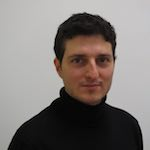
|
Andrea Ferretti, CNR - Moderator
CNR-Nano Researcher, MaX co-PI
Dr. Andrea Ferretti is a developer of scientific software (Yambo and Quantum ESPRESSO) and author of 50 scientific publications in international and peer-reviewed scientific journals. He works in the field of condensed-matter and solid-state physics, performing ab initio simulations at the DFT level and beyond. Current research interests focus on the ab initio study of the electronic and transport properties of organic semiconductors and hybrid interfaces.
|
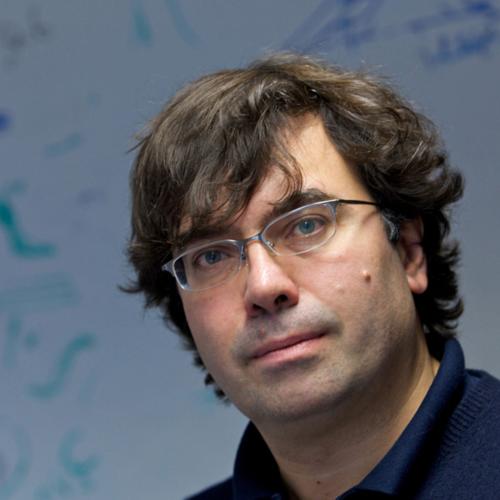
Nicola Marzari
Director at NCCR MARVEL & MaX WP5 Leader
Prof. Nicola Marzari holds the Chair of Theory and Simulation of Materials at EPFL.He is the director of the Swiss National Centre for Competence in Research on Computational Design and Discovery of Novel Materials (NCCR MARVEL) and the current Chairman of Psi-k. Previous tenured appointments include the first University Chair of Materials Modelling at the University of Oxford (UK), and the Toyota Chair for Materials Engineering at the Massachusetts Institute of Technology (Cambridge, MA). Within MaX, he leads WP5, developing an ecosystem for the convergence of high performance and high throughput computing and data analytics.
|

Pablo Ordejon
Director at ICN2 & MaX WP6 Leader
Prof. Pablo Ordejon is Director of ICN2, the Catalan Institute of Nanoscience and Nanotechnology, where he also leads the Theory and Simulation Group. He earned his degree in physics (1987) and a PhD in science (1992) at the Universidad Autónoma de Madrid. He worked as a postdoctoral researcher at the University of Illinois at Urbana-Champaign (USA) from 1992 to 1995, and as an assistant professor at the Universidad de Oviedo from 1995 to 1999. In 1999, he joined the research staff of the Institut de Ciència de Materials de Barcelona (ICMAB) of the Consejo Superior de Investigaciones Científicas (CSIC). Since 2007 he leads the Theory and Simulation Group of ICN2. Since 2012 he is the Director of ICN2 where he is currently a CSIC Research Professor. Within MaX, Pablo Ordejon leads the activities of WP6 on Code demonstrators.
|
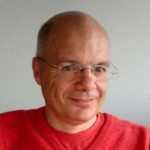
Stefano Baroni
Professor of Theoretical Condensed-matter Physics at SISSA & MaX WP1 Leader
Prof. Stefano Baroni is professor of theoretical condensed-matter physics at SISSA and former head of the SISSA Condensed Matter Theory and Simulation group. He is the founder and instigator of the Quantum ESPRESSO project, as well as founding director of the Quantum ESPRESSO Foundation. He is known for many methodological innovations in electronic-structure theory and simulation, among which density-functional perturbation theory is probably the most widely recognised. From 1994 to 1998 he has been the director of CECAM and in 2002 he was the founding director of the DEMOCRITOS National Simulation Centre (Trieste) of the Italian Institute for the Physics of Matter (INFM, now part of CNR) He serves/has served in the Scientific Advisory Board of the CINECA supercomputing centre, in the board of directors of SISSA and of INFM and in the Scientific Councils of CECAM and of Eurotech company. He is a fellow of the American Physical Society, Division of Computational Physics, and a member of the Accademia Peloritana dei Pericolanti in Messina. Within MaX, Stefano Baroni leads the activities of WP1 on Software architecture towards the Exascale.
|
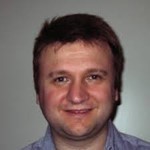
Carlo Cavazzoni
Head of R&D at CINECA & MaX WP4 Leader
Dr. Carlo Cavazzoni graduated in Physics at the University of Modena in 1994 and got a PhD "cum laude" at the International School for Advanced Studies (ISAS-SISSA) of Trieste in 1998. He is presently a staff member of the CINECA SCAI Department on SuperComputing Applications and Innovation. He collaborates with different user communities to enable applications on massively parallel systems and innovative architectural solutions. He is responsible for the parallel design of Quantum ESPRESSO suite of codes. He is author and co-author of several papers published in international journals including Science, Physical Review Letters, Nature Materials, and many others. In PRACE 2IP he was responsible for the EURORA prototype. Within MaX, Carlo Cavazzoni leads the activities of WP4 on Exascaling and Codesign technologies and contributes to the design of MaX High-level support of WP7.
|
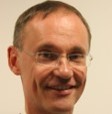
Gerhard Goldbeck
Executive Secretary EMMC
Dr. Gerhard Goldbeck is Managing Director of Goldbeck Consulting Ltd, founded in 2011 to provide bridge gap in the materials modelling value chain from science to engineering and academia to industry. Services include translation and strategies for materials modelling application in industrial R&D. He received his Diploma in Physics from RWTH Aachen University in 1986 and a PhD in Polymer Physics from Bristol University in 1992. Before starting Goldbeck Consulting he was Director of Product Marketing for Materials Studio at Accelrys/Biovia. He is currently also Executive Secretary of the newly founded EMMC Association.
|
|
Thank you for joining MaX webinar!
Andrea Ferretti, CNR Nano, Modena
- Gerhard Goldbeck, Executive Secretary EMMC






